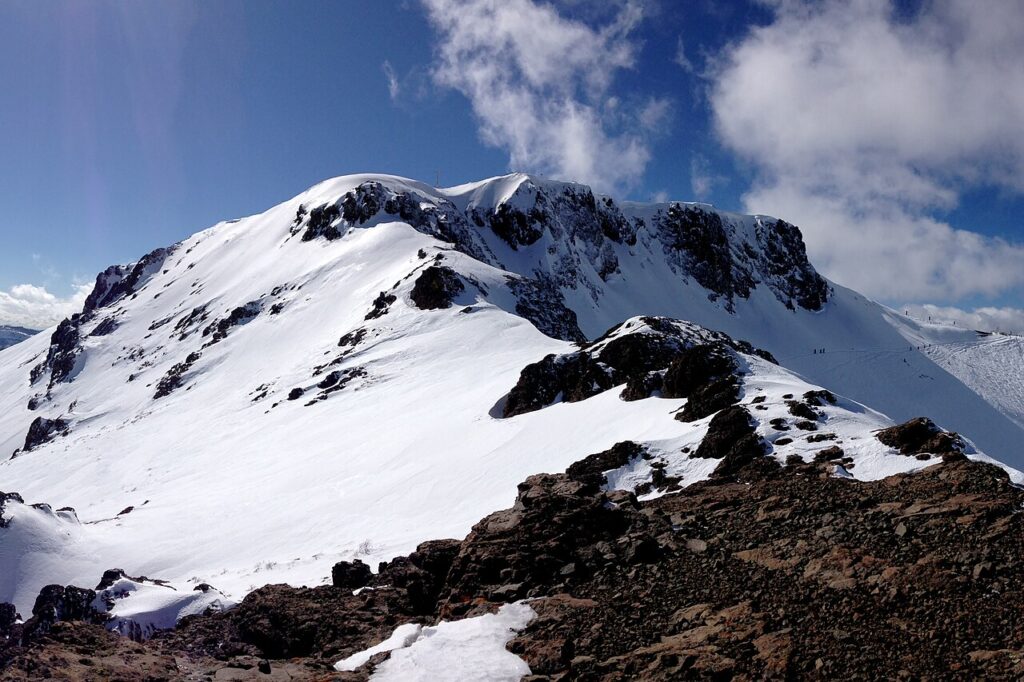
Avalanche Tragedy at Palisades Tahoe: One Life Lost, Another Injured
Unfortunate Turn of Events
In a heartbreaking incident, an avalanche struck Palisades Tahoe on Wednesday, resulting in the loss of one life and injuries to another. The victim, identified as 66-year-old Kenneth Kidd from Point Reyes and Truckee-Tahoe, faced the harsh reality of avalanche dangers.
Avalanche Details
The avalanche occurred around 9:30 a.m., specifically in the Palisades side above the GS gully area of KT-22. Among the four individuals caught in the avalanche, two were buried, one lost his life (Kidd), and another sustained injuries. A survivor shared a chilling account of falling 200 feet before a stranger rescued her.
Palisades Tahoe trail map
Resort’s Immediate Response
Palisades Tahoe swiftly responded to the incident, closing the KT-22 terrain and initiating a comprehensive rescue operation. Despite these efforts, the tragic outcome left the resort in mourning.
Search and Rescue Efforts
Over 100 dedicated personnel from Palisades Tahoe engaged in the search and rescue mission. The magnitude of the situation prompted additional support from Cal Fire, highlighting the collaborative efforts to address the crisis.
A skier witnessing the avalanche from the lift shared her experience with CBS13, recounting how she and fellow skiers joined the efforts to assist in the search.
Mitigation Efforts
Palisades Tahoe’s mountain operations had previously conducted avalanche mitigation efforts in the area, emphasizing their commitment to safety protocols.
Resort’s Plan Moving Forward
While the resort plans to reopen on Thursday, the KT-22 terrain will remain closed as a precautionary measure. This decision aligns with the commitment to visitor safety.
Political Response
Representative Kevin Kiley, overseeing the district encompassing the resort, expressed gratitude to first responders. His office maintains close contact with the Placer County Office of Emergency Services, emphasizing the need for continued support.
Historical Avalanche Risks
Avalanches are a known risk in the Tahoe region, and daily danger forecasts by the Sierra Avalanche Center aim to keep the community informed. This incident follows a historical context, with the last fatal avalanche in the region occurring at Alpine Meadows in 2020.
READ ALSO: Tragic Farewell to Adan Canto: Unveiling the Private Struggles of a TV Legend Lost to Cancer
A Stark Reminder
The tragedy at Palisades Tahoe serves as a poignant reminder of the unpredictable nature of mountainous terrains. As the community mourns the loss of Kenneth Kidd, efforts to enhance awareness and safety protocols become crucial in preventing such unfortunate events in the future.
Note: Avalanche danger was rated “considerable” on the day of the incident.
What you should do in case of an Avalanche?
Avalanche Safety Measures and Emergency Contacts: Navigating the Winter Wilderness
Avalanche Safety Measures:
- Stay Informed:
- Regularly check reliable sources for daily avalanche forecasts.
- Understand the avalanche danger rating and regional conditions.
- Essential Safety Gear:
- Always carry an avalanche transceiver, probe, and shovel.
- Wear a properly fitted avalanche airbag for added safety.
- Educational Courses:
- Enroll in avalanche safety courses to learn terrain assessment, snowpack evaluation, and rescue techniques.
- Refresh knowledge regularly for updated safety practices.
- Travel in Groups:
- Avoid venturing into avalanche-prone areas alone.
- Travel with experienced companions well-versed in avalanche safety.
- Terrain Assessment:
- Identify potential avalanche terrain and avoid high-risk areas.
- Exercise caution around slopes with a steep angle.
- Weather Monitoring:
- Stay informed about changing weather conditions influencing avalanche risk.
- Adjust plans based on adverse weather forecasts.
- Emergency Communication:
- Carry reliable communication devices such as two-way radios or satellite communicators.
- Ensure devices are functional for emergency calls.
In Case of Avalanche:
- Gear Deployment:
- Activate avalanche airbag and deploy safety gear promptly.
- Use transceiver to send distress signals.
- Create Space:
- Create an air pocket in front of your face as the snow settles.
- Swim toward the surface to stay closer to the top.
- Head Protection:
- Shield your head with arms to reduce injury risk.
- Create a breathing space around your mouth.
- Stay Calm:
- Maintain a calm mindset to conserve energy and oxygen.
- Signal others in your group about your location if possible.
Emergency Contacts:
- Local Emergency Services:
- Memorize or save the local emergency services number.
- Provide precise location details and number of people involved.
- Mountain Rescue Teams:
- Know contact information for local mountain rescue teams.
- Some regions have specialized teams for avalanche rescues.
- Avalanche Hotlines:
- Use regional avalanche hotlines for updated information.
- Promptly report incidents to trigger rescue efforts.
- National Emergency Hotline:
- In certain cases, contact the national emergency hotline for assistance.
- GPS Coordinates:
- Share GPS coordinates with rescuers using communication devices.
Following these safety measures and having emergency contacts readily available enhances preparedness and response in avalanche situations. Prevention and education are paramount for effective avalanche safety.
Greetings, readers! I’m Gaurav Ganguly, the engineer-turned-author at British Pulse. Armed with an analytical mind and a penchant for clarity, I bring you news with a unique perspective. Join me in exploring the world of current affairs through the lens of an engineer – where precision meets storytelling. Let’s decode headlines together on British Pulse.